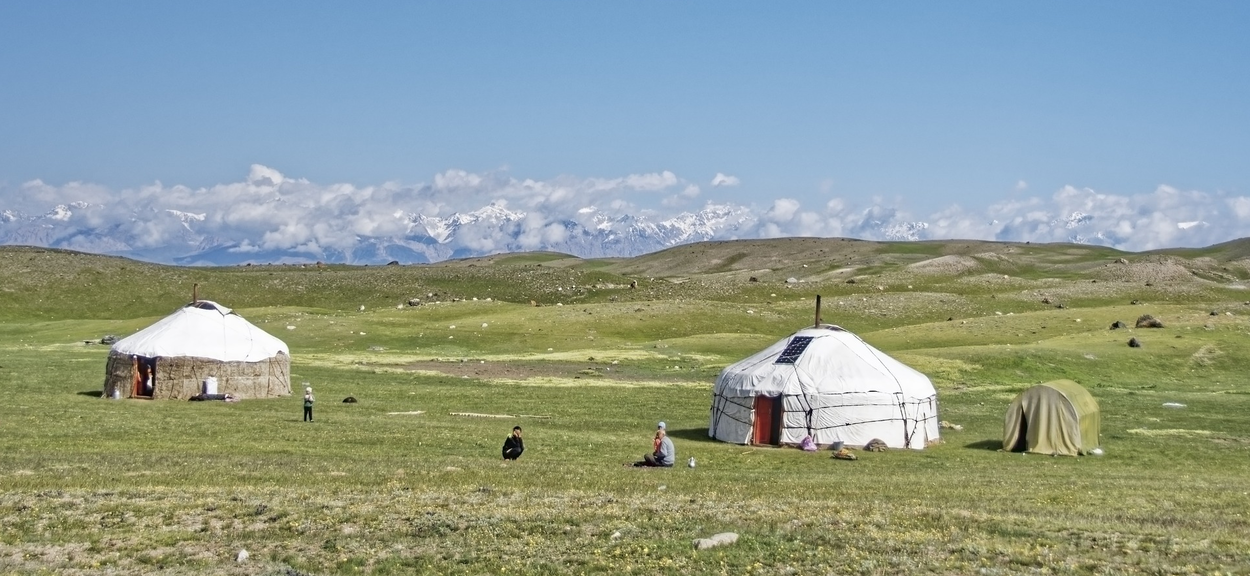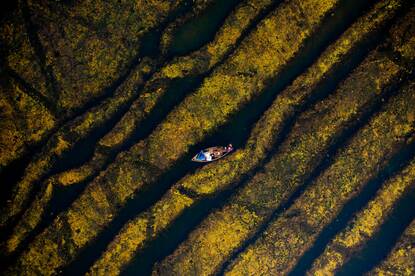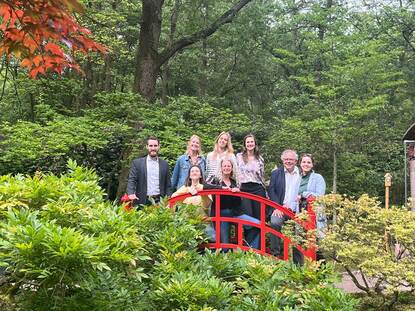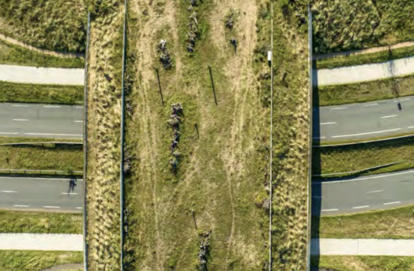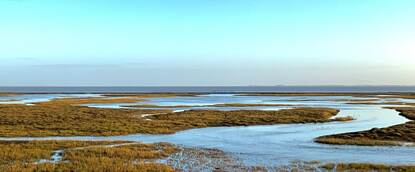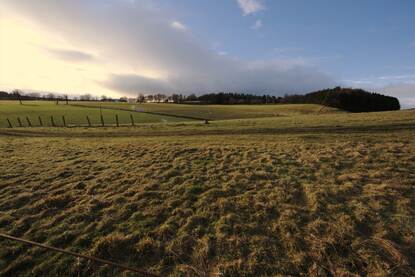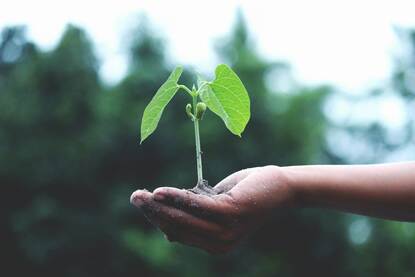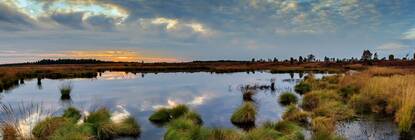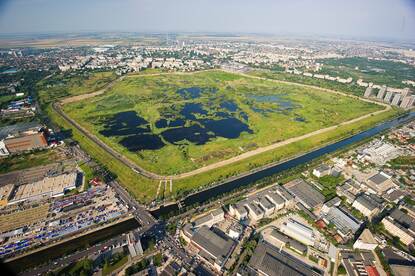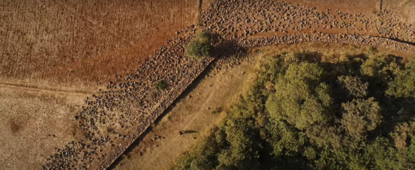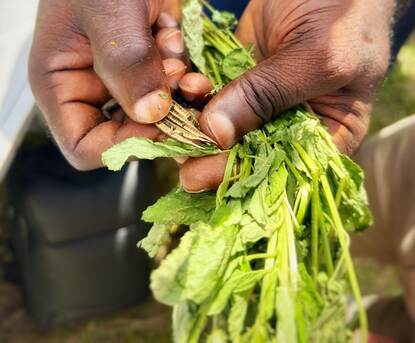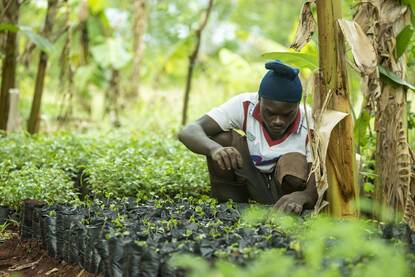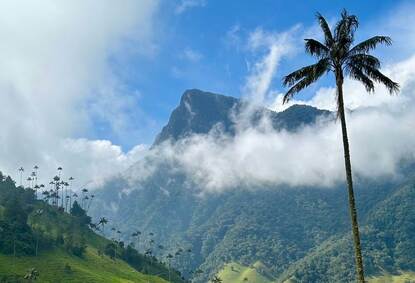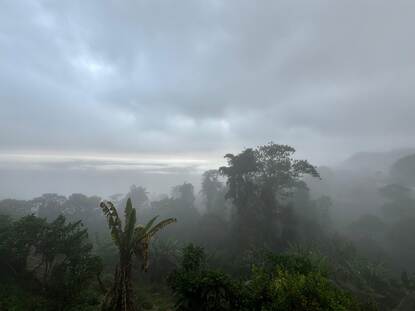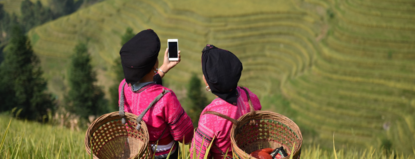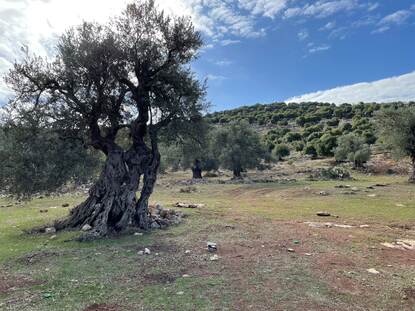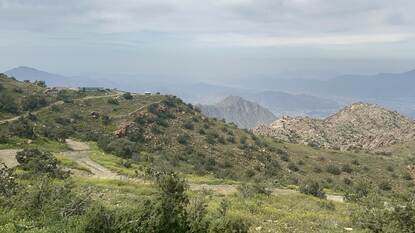The vast landscapes and rich natural resources in Central Asia hold immense potential for sustainable biodiversity practices. As biodiversity becomes a global priority, the region presents unique opportunities for investment and collaboration, especially when it comes to sustainable agriculture. The Netherlands can play a pivotal role in the battle against biodiversity loss, by leveraging expertise in water management, sustainable agriculture, and innovation.
Central Asia contains a diverse range of ecosystems, from the mountains of Kyrgyzstan to the deserts of Kazakhstan and Uzbekistan. However, these ecosystems face significant threats due to climate change, unsustainable agricultural practices, and water mismanagement.
Biodiversity and agricultural challenges
The degradation of natural resources not only impacts biodiversity but also agricultural productivity which is so important in Central Asia. Some examples of the current challenges are:
- Salinization in Uzbekistan
In Uzbekistan, extensive irrigation practices have led to widespread soil salinization— the increase of salt concentration in soil— especially in the agricultural areas surrounding the Aral Sea. Salinization has led to a decline in local biodiversity as plant and animal species that depend on healthy soils have disappeared. Also, it has made large areas of farmland infertile, reducing crop yields and causing economic hardship for farmers.
-
The Aral Sea Catastrophe
The Aral Sea which is located between the Southern part of Kazakhstan and Northern Uzbekistan was once a massive inland water body and one of the four largest lakes in the world. It has shrunk drastically due to water diversion for cotton production. This environmental disaster has led to a dramatic reduction of native fish species, the collapse of the local fishing industry, and the creation of a toxic desert. The toxic dust from the dried seabed has spread across the region, causing health problems and further harming agriculture.
-
Steppe degradation across Central Asia
The steppe ecosystems of Central Asia are important for both biodiversity and agriculture. However, they are degrading due to overgrazing, agriculture, and climate change. This has resulted in the loss of plant species and a decline in the productivity of these lands.
-
Other examples are industrial poisoning in Kazakhstan, the decline of the snow leopard and other wildlife, and deforestation.
Governmental strategic ambitions
In response to these challenges, Central Asian governments have begun to implement strategic plans aimed at conserving and restoring biodiversity. As a result, regional governments are engaged in international cooperation, seeking expertise and investment from global partners. Their strategic ambitions reflect a growing recognition of the need to protect and restore biodiversity for the long-term sustainability of their countries, in combination with sustainable food production systems.
Netherlands’ involvement in current initiatives in Central Asia
The Netherlands has already established a strong presence in Central Asia through various projects and collaborations. The Netherlands Agricultural Network (LAN) team at the Dutch Embassy in Astana, Kazakhstan, plays a pivotal role by staying closely connected to national and local governments, universities, and private sector organizations to promote sustainable agricultural practices, biodiversity conservation and sustainable food production developments.
In Kyrgyzstan, the Netherlands is significantly involved in an international afforestation project. With support of the LAN team, Rabobank is collaborating with both local and global partners and the Kyrgyz Government. The project gives local farmers perspective in continuing their agricultural practices, especially in the field of organic farming.
Cooperation among farmers is high on the agenda of the Kyrgyz Government. On invitation of the LAN team, experts from the Netherlands were invited to showcase the Netherlands cooperation as a model to local solutions. Another initiative has recently appeared through the exploration of concrete projects in sustainable fruit production. The Netherlands Enterprise Agency (RVO), the Dutch fruit sector, local partners such as smallscale farmers organizations and professional consultants of agricultural commodity service cooperative Agrolead, and the LAN team are working closely together to start this up.
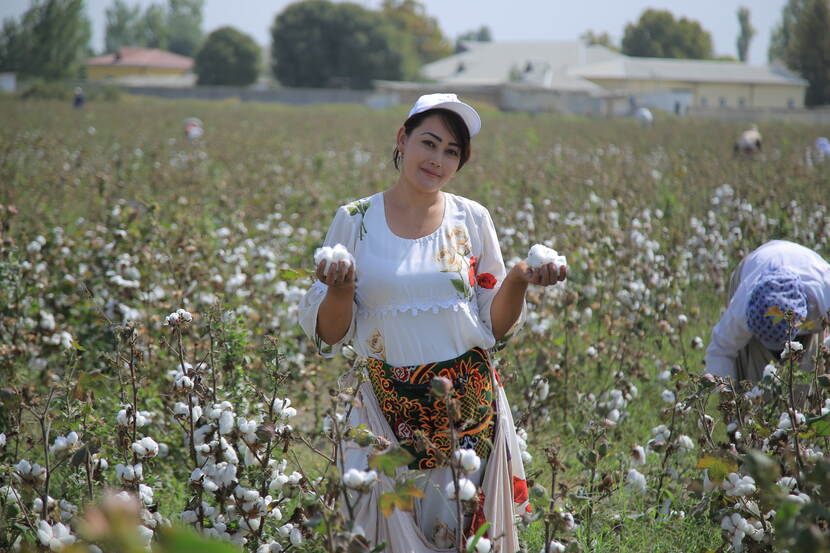
‘The already strong presence of the Netherlands in Central Asia provides a solid foundation for successful collaboration’
Kazakh delegation visiting the Netherlands
Last year, a Kazakh-Netherlands governmental working group was established. The aim is to bring private sector organizations, knowledge institutions and the national governments together annually to discuss collaboration on sustainable food production initiatives with a strong focus on biodiversity. This year, the Kazakh delegation will visit the Netherlands to become aquainted with the Dutch Diamond: the Dutch way of combining technology and knowledge development through collaboration between government, private sector, knowledge institutes and society with a central connection through the Topsectors.
In collaboration with Dutch stakeholders, such as Groenpact, Royal GD, Dutch Greenhouse Delta, Rijk Zwaan and other experts, the group will organize field visits, and hold a technical session to strengthen bonds on developments in Kazakhstan. These activities will focus on animal health improvement, dairy development, and sustainable horticulture with the introduction of seed techniques in combination with green education.
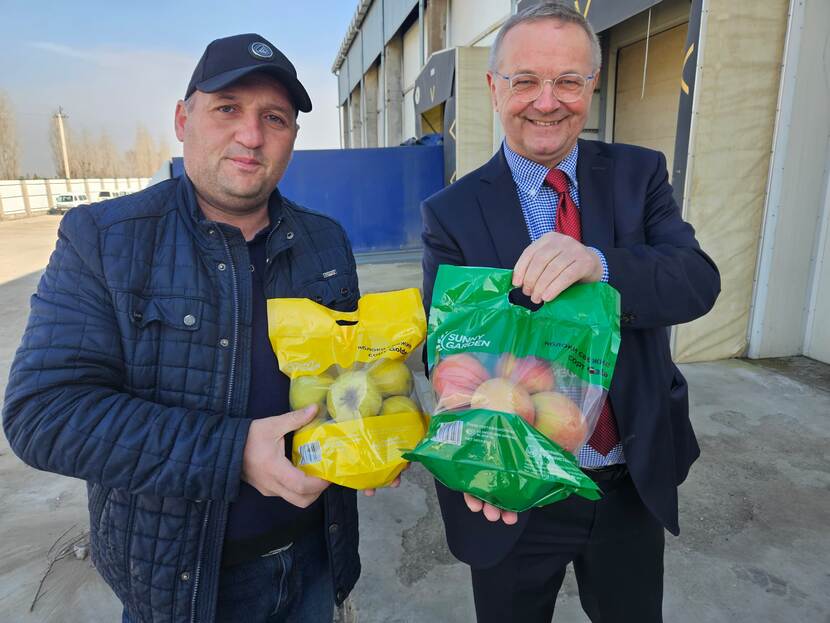
PIB on sustainable fruit production
Meanwhile, in Uzbekistan, there is an ongoing Partners for International Business (PIB) project focused on sustainable fruit production. In collaboration with a very active Netherlands fruit consortium, headed by the experienced coordinator Mr. Alfred Evers, and the RVO team in The Hague, the LAN team is actively involved in positioning the Dutch sector in the Uzbek network. The main challenge is increasing visibility of the sector(s) within the institutional organization of Uzbekistan, i.e. the central and local authorities, and the knowledge institutions.
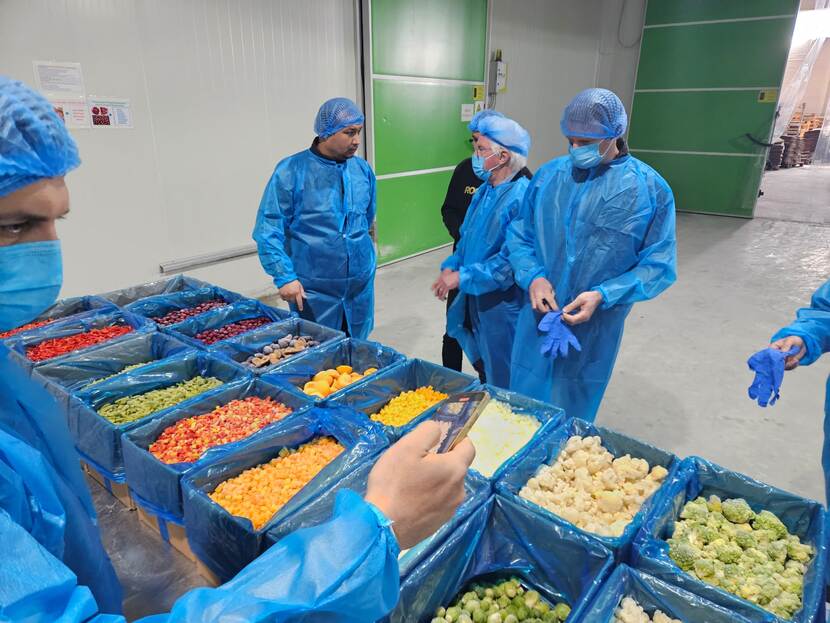
Potential research collaborations on steppe ecosystems
The LAN team actively promotes cooperation in the agricultural and environmental education and research sectors between the Netherlands and Central Asia. In the beginning of 2024, a group of researchers from Wageningen University & Research visited Astana and Almaty to engage in discussions with colleagues from local educational and environmental institutions and associations. The purpose was to explore potential collaborations in research of steppe ecosystems.
Opportunities for the Netherlands
All the initiatives above make clear that a lot needs to be done. And that the Netherlands can play a crucial role in this irreversible development. Some examples include:
-
Water management solutions
Water is a critical resource in Central Asia, and its scarcity is a major challenge for sustainable agriculture. Dutch companies are known for their advanced water management technologies and can contribute to developing sustainable water management strategies, including restoring old irrigation systems.
-
Sustainable agricultural practices
Central Asia’s agriculture sector is ready for transformation. The introduction of sustainable farming practices, such as crop diversification, organic farming, and precision agriculture, can enhance biodiversity while boosting productivity. Dutch agrobusinesses can lead this transformation by offering expertise in these areas.
-
Technology and innovation
Innovation is key to overcoming the environmental challenges in Central Asia. Modern agrotechnology companies are well-positioned to introduce cutting-edge solutions, from precision farming tools to climate-smart agriculture technologies. These innovations not only increase agricultural efficiency but also minimize the environmental impact. By partnering with local institutions and businesses, experienced companies can tailor these technologies to the specific needs of the region, making a significant impact on both agricultural productivity and biodiversity conservation.
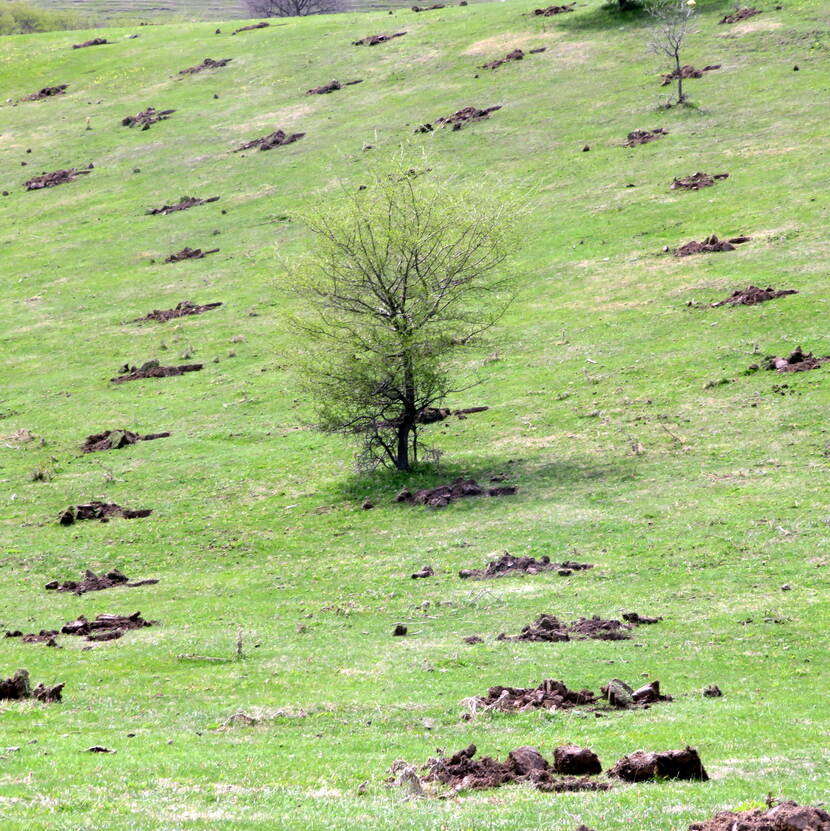
Call to action
The already strong presence of the Netherlands in Central Asia, facilitated by the LAN team in Astana, provides a solid foundation for successful collaboration. As a result, Central Asia offers a promising landscape for growth and impact.
The sustainable conservation, restoration, and use of biodiversity in Central Asia present a significant opportunity for Dutch companies and institutions related to sustainable agro and food production. By leveraging expertise in water management, sustainable agriculture, and innovation, companies can play a crucial role in transforming Central Asia’s agricultural sector and increasing the battle against biodiversity loss.
Meet the LAN team in Astana
In the video below, the LAN team in Astana shares the current situation and challenges with biodiversity in Central Asia. They also mention how their work and support is helping target these challenges in the region. In order of appearance: Agricultural Counselor Arie Veldhuizen, Agricultural Advisor Anastasia Ryabukha and Agricultural Officer Yuliya Nabatova.
Meet the Netherlands Agricultural Network (LAN) team at the Dutch Embassy in Astana, Kazakhstan. In this video, they share the current situation and challenges with biodiversity in Central Asia. They also inform us how their work and support is helping target these challenges in the region.
More information
Would you like to know more about biodiversity restoration and sustainable agriculture in Central Asia? For more information you can visit the country pages of Kazakhstan, Uzbekistan and Kyrgyzstan at the website Agroberichtenbuitenland.nl of the Dutch Ministry of Agriculture, Fisheries, Food Security and Nature. You can also send an e-mail to the LAN team at the Dutch Embassy in Astana: AST-lvvn@minbuza.nl.
